PEMS (Porto Electronic Music Symposium) 2024
O PEMS (Porto Electronic Music Symposium) 2024, organizado pela Casa da Música através da Digitópia, é a segunda edição deste ponto de encontro que celebra a criação artística, a performance e a inclusão através da relação entre a tecnologia e a música. Com convidados nacionais e internacionais de referência na área, e concertos, oficinas, mesas redondas e outros eventos, todos eles abertos aos interessados, o tema desta edição é “Tecnologia para Humanos”, colocando o foco no papel que a tecnologia desempenha na criação de experiências que nos aproximem dos outros – e de nós próprios.
PEMS (Porto Electronic Music Symposium) 2024, organized by Casa da Música through Digitópia, is the second edition of this meeting point that celebrates artistic creation, performance and inclusion through the relationship between technology and music. With national and international guests who are leaders in the field, and concerts, workshops, round tables and other events, all open to those interested, the theme for this year’s edition is “Technology for Humans”, exploring the role that technology plays in the creation of experiences that bring us closer together – both to each other and to ourselves.
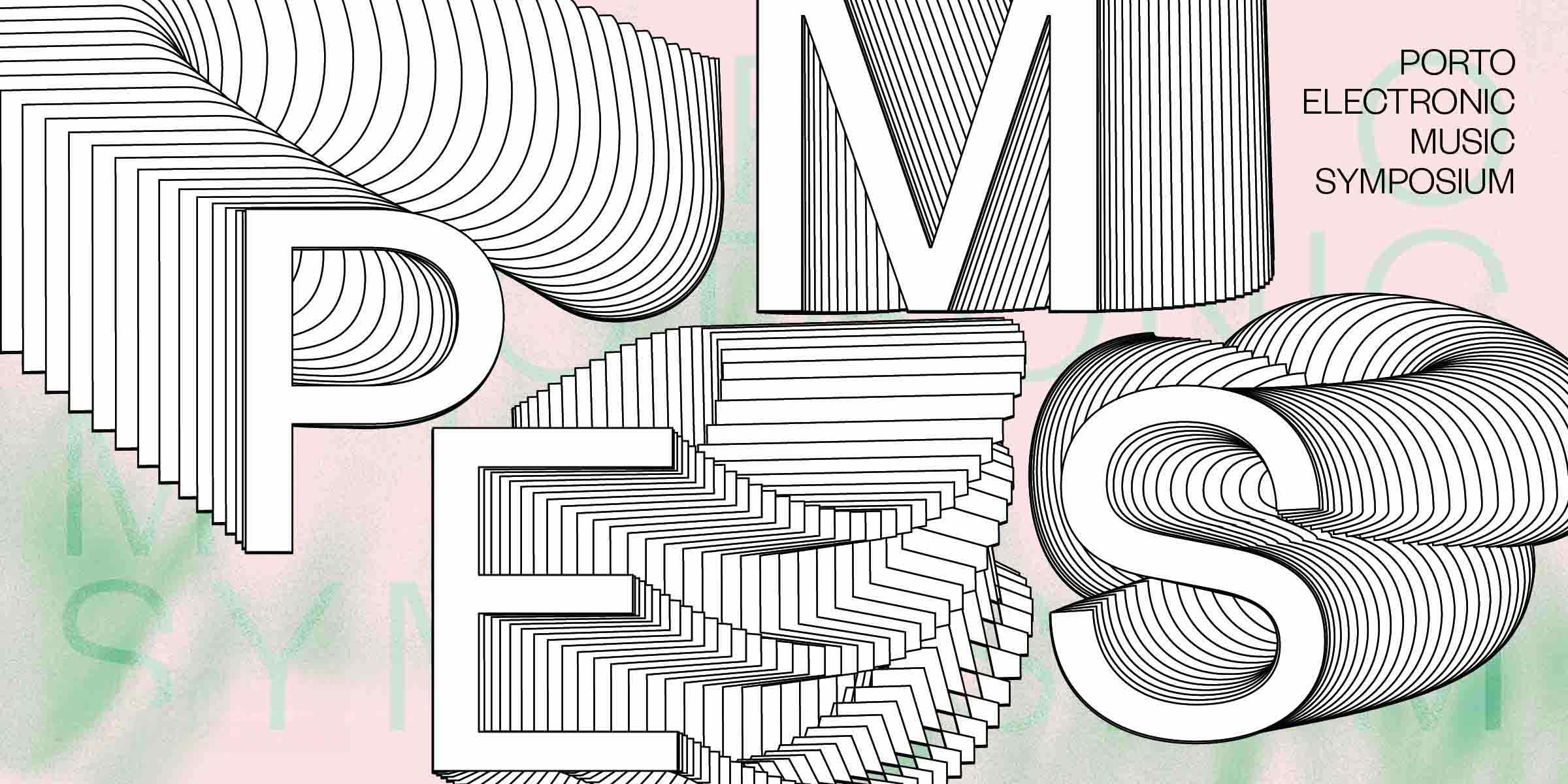
PROGRAM OVERVIEW / PROGRAMA
Dia 1 (04 outubro)
Day 1 (October 04th)
13:30 | Box Office
Welcome Desk
14:00 | Sala 2
Sessão de boas-vindas e apresentação da Digitópia
Welcome session and Digitópia showcase
14:30 | Sala 2
Palestra principal – Thor Magnusson: Creative AI in our Hands: Playing with Intelligent Instruments
Keynote – Thor Magnusson: Creative AI in our Hands: Playing with Intelligent Instruments
15:30 | Casa da Música
16:30 | Bar 2
Coffee Break
17:15 | Sala de Ensaio 1
Workshop – Reimaginar os Instrumentos em Ação, por Elena Rykova
Workshop – Reimagining Instruments in Action, by Elena Rykova
18:45 | Sala de Ensaio 1
21:30 | Sala 2
Dia 2 (05 outubro)
Day 2 (October 05th)
09:30 | Box Office
Welcome Desk
09:45 | Sala 2
Sessão de boas-vindas – dia 2
Welcome session – day 2
10:00 | Sala 2
Palestra principal – Elena Rykova: Entre Objetos e Instrumentos: Reimaginar a Tecnologia Musical para a Criação Musical Colaborativa, por Elena Rykova
Keynote – Elena Rykova : Between Objects and Instruments: Reimagining Music Technology for Collaborative Musicmaking, by Elena Rykova
11:00 | Bar 2
Coffee Break
11:45 | Sala de Ensaio 2
14:30 | Sala de Ensaio 2
Handmade music and jam
15:15 | Sala de Ensaio 2
Workshop – Thor Magnusson: Programming with SuperCollider and Bela
16:30 | Bar 2
Coffee Break
17:15 | Sala 2
Vibrant soundscapes: quickfire sessions on music, sound, art and technology
18:00 | Sala 2
Concerto final: Luís Fernandes e Joana Gama
Final concert: Luís Fernandes and Joana Gama
19:00 | Sala 2
Final e antevisão PEMS 2025
Ending and PEMS 2025 preview
Speakers
Elena Rykova
Keynote speaker and Workshop leader
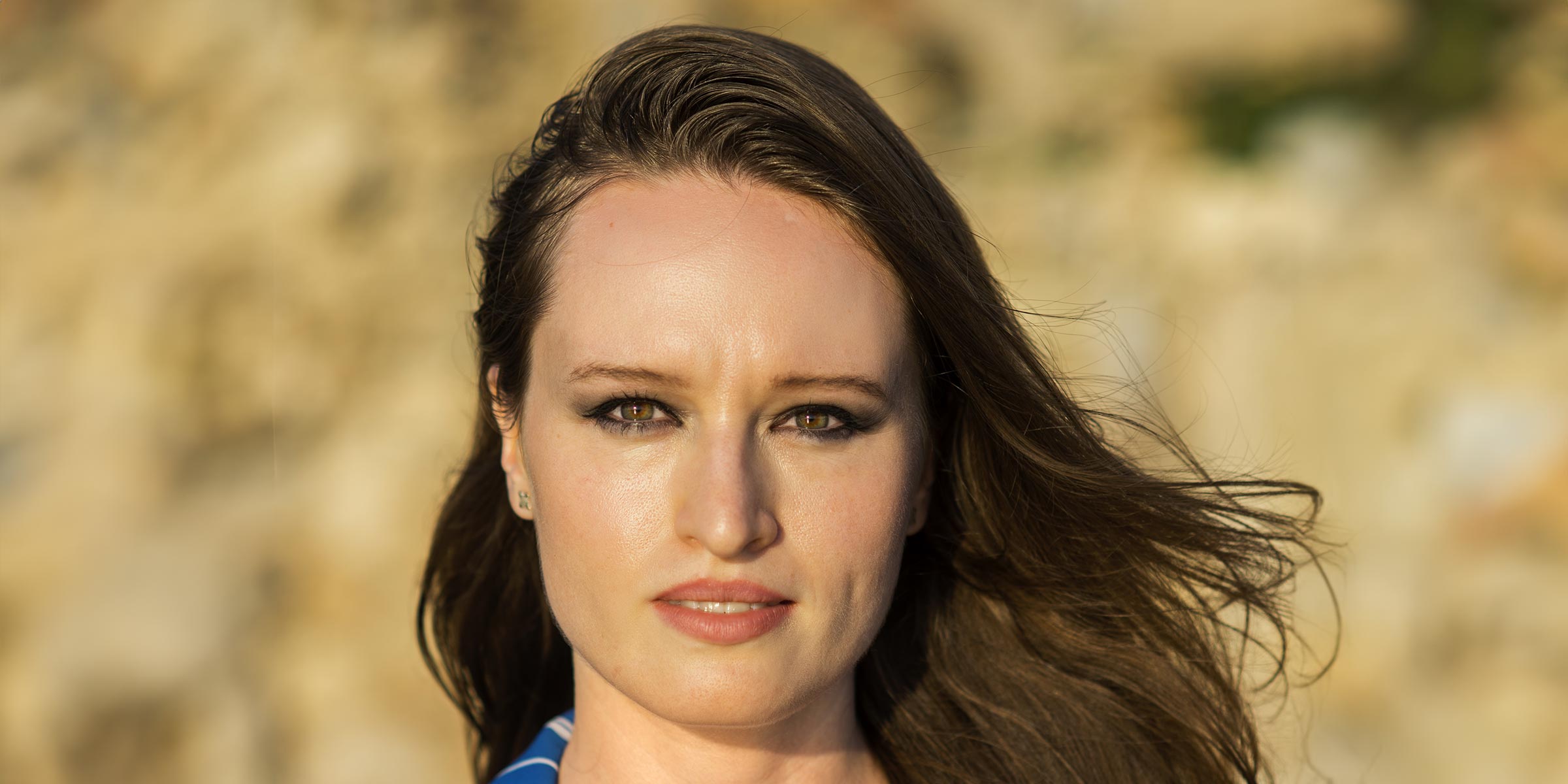
Elena Rykova is a versatile composer, interdisciplinary, and performance artist whose creative exploration spans a diverse range of genres in music and visual art. Based in Lausanne, Switzerland, she often intertwines instruments with found objects, crafting performative musical situations enriched with a strong visual aspect. Her scores are characterized by an innovative use of nontraditional notation, having been exhibited in art museums internationally. Her portfolio includes compositions for chamber and ensemble settings, music theater productions, and scores for acclaimed new music ensembles, alongside electroacoustic compositions and music for film and animation.
Past and recent collaborations involve new music ensembles: Musikfabrik, Frames Percussion, UFA Sextet, Nikel, IEMA, Curious Chamber Players, Mosaik, Nemø, Down the Rabbit Hole, Schallfeld, Calefax Reed Quintet, Neue Vocalsolisten Stuttgart, line upon line, the Black Page Orchestra, Linea, Opera lab Berlin, London Contemporary Ensemble, Garage, Gaagego, hand werk, Yarn/Wire, Collegium Novum, Ensemble Lunaire, and others.
Her music has been performed at festivals such as: Darmstadt Music Festival, ECLAT, Wittener Tage für neue Kammermusik, Klangspuren, MaerzMusik, WIEN-Modern, Klang, Tzlil Meudcan, Ensems, Mixtur, Warsaw autumn, Pré, ManiFeste, Bludenzer Tage zeitgemäßer Musik, New Talents Biennale in Cologne, Ultima, Impuls, and others.
She was an invited professor of composition at Catalonia College of Music (Esmuc), Ciel Composition Academy, Mixtur festival, and a guest composer at Bath Spa University, Robert Schumann Hochschule, Conservatory Superior de Música de València, Conservatori Superior de Música de Castelló, and others. Elena is a distinguished fellow of Junge Akademie der Künste in Berlin.
Rykova holds a Ph.D. from Harvard University, where she also worked as a teaching assistant in composition and electroacoustic music courses.
Elena currently serves on the programmation committee of Société de Musique Contemporaine (SMC) and as a board member of Swiss Music Edition (SME). Starting in August 2024, Rykova took on the role of Artistic Director for the Basel-based ensemble Lemniscate, further solidifying her commitment to shaping the future of new music.
Thor Magnusson
Keynote speaker and Workshop leader
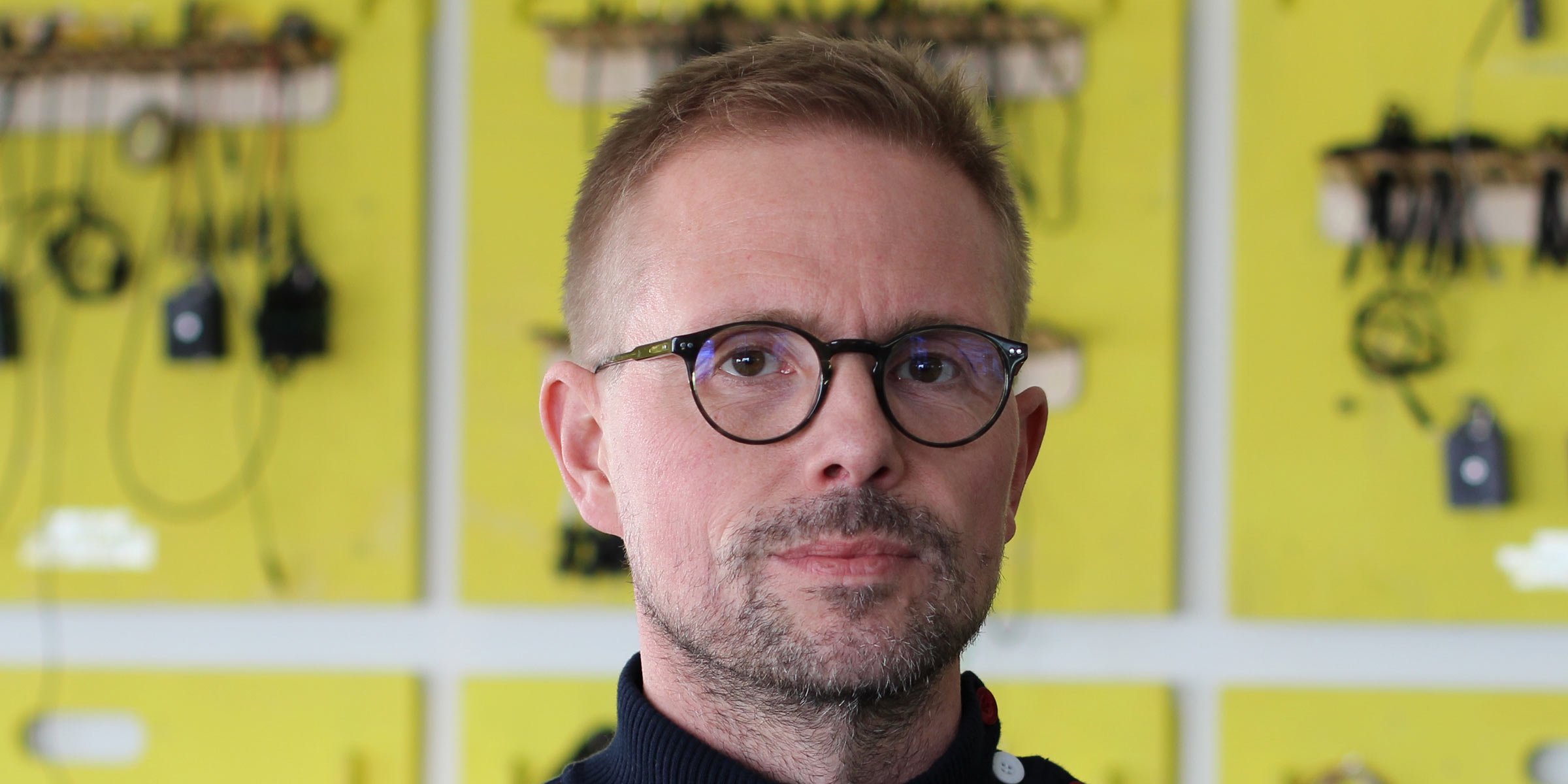
Thor Magnusson is a Professor in Future Music at the University of Sussex. His work focusses on the impact of digital technologies on musical creativity, explored equally through practice (software development, composition, performance), theory (publications, lecturing, talks) and education (teaching, workshops, tutorials). Magnusson’s research is underpinned by the philosophy of technology and cognitive science, exploring issues of embodiment, artificial intelligence, and compositional constraints in digital musical systems as practiced by musicians in concrete situations. He is the co-founder of ixi audio and he has developed audio software and systems of generative music composition, written computer music tutorials, and created three musical live coding environments.
Magnusson was a Leadership Fellow with the Arts and Humanities Research Council where wrote a monograph called Sonic Writing: The Technologies of Material, Symbolic and Signal Inscriptions, published by Bloomsbury Academic. By exploring how contemporary music technologies trace their ancestry to previous forms of instruments and media, including symbolic musical notation, the book builds theoretical foundations for the study of creative AI and machine learning in future music.
Following the Sonic Writing project he collaborated with colleagues across the UK in developing machine learning for creative coding as part of the MIMIC project. The Sussex team has recently launched the Sema system for developing new live coding languages for machine learning.
Magnusson is currently running the 5-year ERC-funded Intelligent Instruments project at the Iceland University of the Arts.
Magnusson is also member of the international TENOR research network that explores new technologies for musical notation and representation. He sits on the editorial board of the International Journal of Digital Media and Performance Arts and is on the organistional committee of conferences such as International Conference on Live Interfaces, International Conference on Live Coding and xCoAx.
Magnusson has presented work and performed at various festivals and conferences, such as Transmediale, Ars Electronica, Ertz, Darmstadt Summer School, Encounters Festival, Dark Music Days, RE:New, Sonar, ISEA (International Symposium for Electronic Arts), ICMC (International Computer Music Conference), NIME Conference (New Interfaces for Musical Expression), Impact festival, Soundwaves, Cybersonica, Ultrasound and Pixelache.
KEYNOTES
friday, october 04, 14:30
Palestra principal – Thor Magnusson: Creative AI in our Hands: Playing with Intelligent Instruments
Keynote – Thor Magnusson: Creative AI in our Hands: Playing with Intelligent Instruments
Intelligent instruments are a result of how contemporary AI technologies are becoming integral components of our musical ecosystems. The application of creative AI can range from automatic music creation to the embedding of intelligent algorithms in the instrument itself. Based on experience in practice-based research on creative AI systems, I will present a new mode of exploration and enquiry that emerges when we encounter an intelligent instrument and begin to discover their ergodynamics. The HCI notion of interactivity moves aside for autonomy and a stronger perception of agentical relations through dialogue, probing, curiosity, surprise, alterity and collaboration. When our musical instrument becomes an interlocutor with a strong agency our interaction shifts more to that of prediction, expectation, and confirmation, resulting in a heightened improvisational approaches.
WORKSHOPS
saturday, october 05, 10:00
Artefactos ressonantes: como pode a tecnologia ajudar-nos a auscultar o mundo, por Filipe Lopes e José Alberto Gomes
Resonant artifacts: how technology helps us to understand the world through sound, by Filipe Lopes e José Alberto Gomes
Este workshop explora o poder do som e das vibrações, mediados pela tecnologia, como ferramentas para compreender o nosso ambiente e a nós próprios. O foco é a forma como a tecnologia capta e traduz as vibrações – tanto audíveis como inaudíveis – em novas formas de conhecimento e expressão criativa. Iremos mergulhar em técnicas de audição inovadoras e debater a forma como o som molda a nossa perceção do mundo. Através de actividades práticas, o workshop também abordará a criação musical, destacando como a música eletrónica pode revelar ressonâncias ocultas que aprofundam a nossa ligação à realidade.
This workshop explores the power of sound and vibrations, as mediated by technology, as tools for understanding our environment and ourselves. The focus is how technology captures and translates vibrations—both audible and inaudible—into new forms of knowledge and creative expression. We’ll dive into innovative listening techniques and discuss how sound shapes our perception of the world. Through hands-on activities, the workshop will also touch on musical creation, highlighting how electronic music can reveal hidden resonances that deepen our connection to reality.
Filipe Lopes
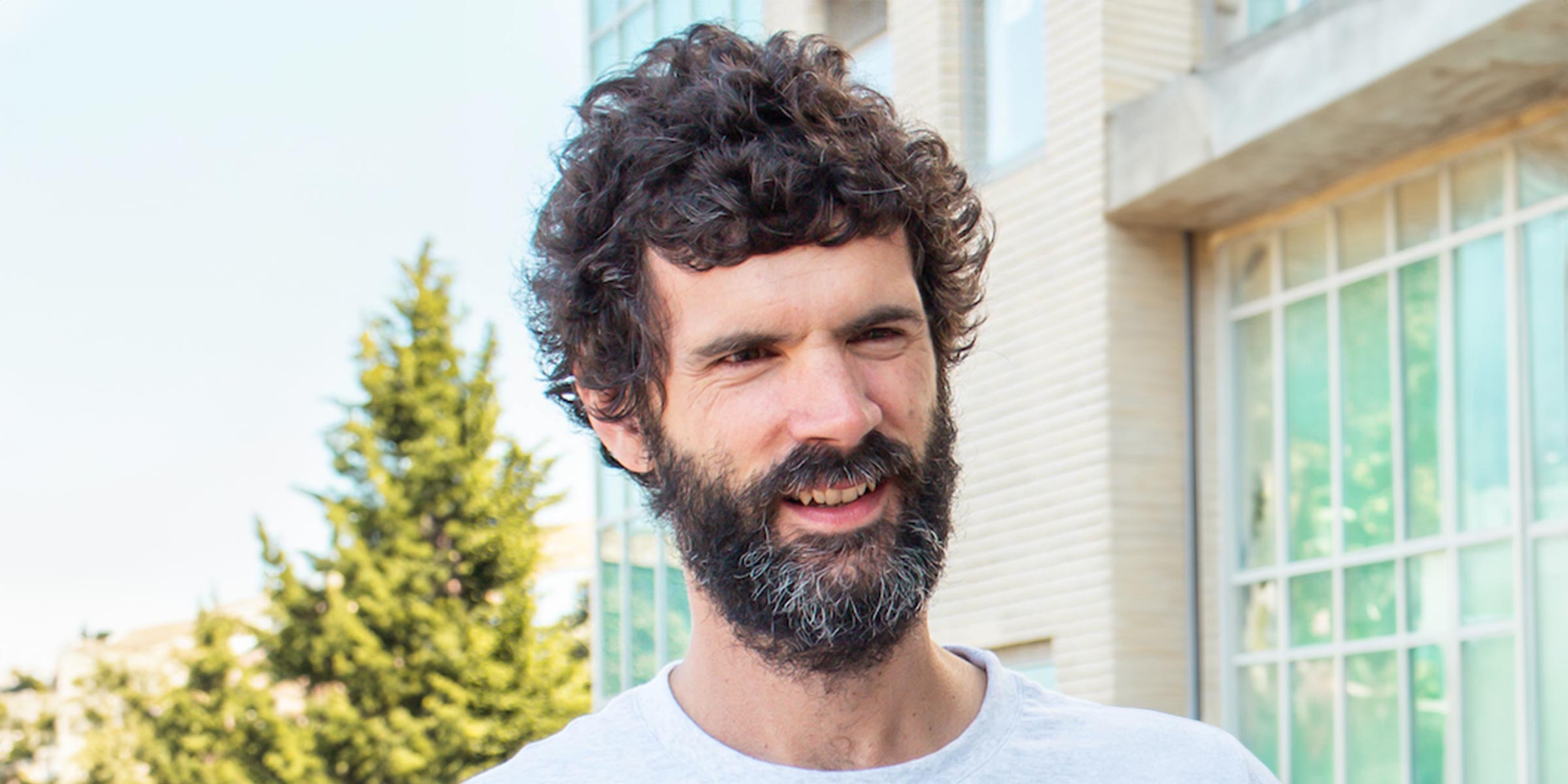
Filipe Lopes (PhD) é compositor com fortes afinidades com a música electroacústica, professor adjunto na Escola Superior de Media Artes e Design (Instituto Politécnico do Porto), investigador no CIPEM/INET-md, bem como no ESMAD ID+. Cria música para instalação multimédia, cinema e teatro, para além de vários trabalhos criativos e pedagógicos que combinam educação musical e tecnologias digitais. Leccionou em várias instituições portuguesas e recentemente tem-se dedicado ao estudo da relação entre música, cultura e natureza, como também à criação de novos instrumentos de música electroacústica.
Filipe Lopes (PhD) is composer with strong affinities with electroacoustic music, adjunct Professor at the School of Media Arts and Design (Porto Polytechnic Institute), researcher at the CIPEM/INET-md, as well as at ESMAD ID+. He also creates music for multimedia installation, cinema and theatre, in addition to several creative and pedagogical works that combines music education and digital technologies. He taught at several Portuguese institutions and recently he is focused on studying the relationship between music, culture and nature and, on the other hand, focused on creating new electroacoustic music instruments.
José Alberto Gomes
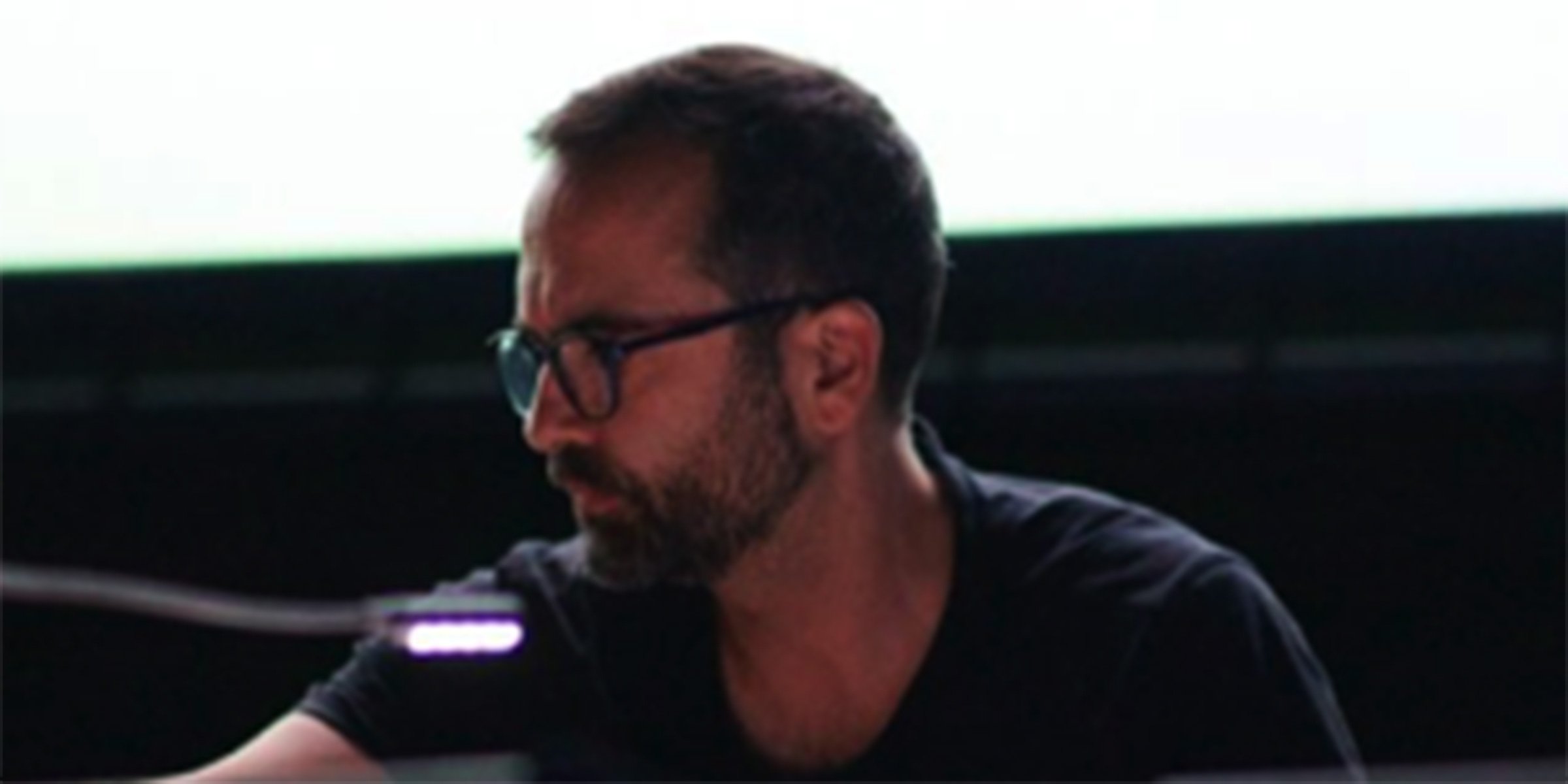
José Alberto Gomes é um músico, artista sonoro e curador do Porto, Portugal. Licenciado em Composição, criou fortes laços com as novas possibilidades tecnológicas e com o papel da música no teatro, no cinema, nas instalações e na improvisação, interessando-se particularmente pela procura de novos caminhos e novos “lugares” musicais. Doutorado em Informática Musical com a tese Composing with Soundscapes – Capturing and Analysing Urban Audio for a Raw Musical Interpretation, é professor na Escola das Artes – UCP, onde leciona New Media Art, Som e Música por Computador, Artes Sonoras e coordena o programa de doutoramento em Ciência e Tecnologia das Artes. É criador nas áreas da música e som para peças de teatro e cinema, criação e programação para interatividade sonora em instalações e composição para eletrónica e instrumento. É também cofundador e codiretor do coletivo artístico Supernova Ensemble dedicado à música inovadora nos campos performativo, dos novos media e da arte sonora.
José Alberto Gomes is a musician, sound artist and curator from Porto, Portugal. Graduate in Music Composition, he created strong bonds with new technological possibilities and the role of music in music theatre, film, installations and electronic improvisation, taking particular interest in seeking new ways and new musical “places”. PhD in Computer Music with the thesis Composing with Soundscapes – Capturing and Analysing Urban Audio for a Raw Musical Interpretation. He is a professor at School of the Arts – UCP, teaching New Media Art, Sound and Computer Music, Sound Art and coordinator of the PhD program Science and Technology of the Arts. He performs regularly in public projects both in solo and collective projects. He is a creator in the areas of music and sound for plays and cinema, creation and programming for sound interactivity in installations and composition for electronics and instrument. Is also a co-founder and co-director of the artistic collective Supernova Ensemble dedicated to innovative music in performative, new media and sound art fields.
friday, october 04, 17:15
Reimaginar os Instrumentos em Ação, por Elena Rykova
Reimagining Instruments in Action, by Elena Rykova
Neste workshop, vamos explorar as configurações de obras selecionadas com instrumentos partilhados e modificados. Iremos aprofundar a forma como estes instrumentos funcionam, os conceitos subjacentes às suas modificações, e os participantes poderão experimentar as configurações e tocar com elas. Além disso, examinaremos a notação utilizada nestas peças, oferecendo uma visão sobre como os aspectos performativos são traduzidos na partitura.
In this workshop, we will explore the setups of selected works featuring shared and modified instruments. We will delve into how these instruments function, the concepts behind their modifications, and participants will be able to try the setups for themselves and play with them. Additionally, we will examine the notation used in these pieces, offering insight into how performative aspects are translated into the score.
saturday, october 05, 15:15
Programming with SuperCollider and Bela, by Thor Magnusson
In this workshop we will look at working with the SuperCollider audio programming environment and how this can be implemented in the Bela audio microcomputer for embedded instruments. We will make SuperCollider Synth Definitions and upload them to Belas. As a practical example we will be composing SuperCollider pieces and uploading them to the Bela in the halldorophone. (www.iil.is/research/halldorophone)
CONCERTS
friday, october 04, 21:30
Digitópolis 2024
O concerto Digitópolis 2024 é um encontro de três comunidades diferentes que explora o cruzamento entre a tecnologia e a criação musical, centrado no tema “tecnologia para humanos”. Três grupos distintos e criados para este mesmo concerto irão partilhar o palco, com uma disposição imersiva e à volta do público. O Ensemble de Sons Bizarros, composto por jovens do Coro Infantil Casa da Música, apresenta-se com instrumentos que eles próprios construíram. O Ensemble Improvável junta músicos com percursos profissionais e artísticos diversificados, onde a música convive com outras disciplinas. Já o Há Devir Ensemble traz à cena alunos do Mestrado em Composição e Teoria Musical da ESMAE, num papel duplo de compositores e intérpretes.
Ao longo do concerto, os ensembles atuarão a solo, em duo e em conjunto, criando paisagens sonoras e peças que propõem uma escuta atenta e ativa. A diversidade estética e técnica de cada grupo dá lugar a momentos inesperados, enquanto a tecnologia surge como um meio de transformação e diálogo entre os músicos de cada grupo, entre conjuntos diferentes, e com o público. O Digitópolis 2024 é também o primeiro dos Concertos Utópicos, um novo ciclo de concertos da Digitópia, que nos trazem uma oportunidade para reimaginar o papel da música e da tecnologia, bem como os rituais intrínsecos e habituais à realização de concertos, sem perder o foco na exploração da condição humana e no que esta pode comunicar através do som.
The Digitópolis 2024 concert is a meeting of three different communities that explores the intersection between technology and musical creation, centered on the theme of “technology for humans”. Three different groups created for the same concert will share the stage, with an immersive layout around the audience. The Bizarre Sounds Ensemble, made up of young people from the Casa da Música Children’s Choir, will perform with instruments they have built themselves. The Ensemble Improvável brings together musicians with diverse professional and artistic backgrounds, where music coexists with other disciplines. The Há Devir Ensemble brings to the stage students from ESMAE’s Master’s Degree in Composition and Music Theory, in the dual role of composers and performers.
Throughout the concert, the ensembles will perform solo, in duo and together, creating soundscapes and pieces that require attentive and active listening. The aesthetic and technical diversity of each group gives rise to unexpected moments, while technology emerges as a means of transformation and dialog between the musicians of each group, between different ensembles, and with the audience. Digitópolis 2024 is also the first of the Utopian Concerts, a new cycle of concerts by Digitópia, which provide an opportunity to reimagine the role of music and technology, as well as the intrinsic and habitual rituals of concert-going, without losing focus on the exploration of the human condition and what it can communicate through sound.
Filipe Fernandes e Óscar Rodrigues direção artística/artistic direction
Miguel Bastos direção musical/musical direction
Ensemble de Sons Bizarros
Carolina Oliveira
Adriana Moreno
Afonso Guimarães
António Fontelonga
Beatriz Pinto
David Ferreira
Erica Azevedo
Joana Sousa
Margarida Teixeira
Maria Clara Silva
Matilde Pinheiro
Rafaela Filipe
Sarah Pressler
Suéli Fernandes
Ensemble Improvável
João Bonifácio Baptista
João Costa
João Freitas
Pedro Figueiredo
Simão Collares
Há Devir Ensemble
Clara Lacerda
David Silva
Gabriel Costa
Mariana Coelho
Rodrigo Pinto
Rúben Dias
friday, october 05, 18:00
Joana Gama & Luís Fernandes
Desde o concerto de estreia, em 2014, o duo de piano e electrónica composto por Joana Gama e Luís Fernandes tem-se apresentado regularmente em Portugal e no estrangeiro, destacando-se a apresentação de “at the still point of the turning world”, com a Orquestra Metropolitana, no Grande Auditório da Fundação Calouste Gulbenkian, em 2019. Em 2022 editaram “There’s no knowing”, que veio no seguimento do convite lançado por Nuno M. Cardoso para a criação da banda sonora para a série televisiva Cassandra, que passou na RTP2 em 2023. “Strata” é o nome do seu próximo álbum, que sairá em 2025 pela Holuzam.
Since their debut concert in 2014, the piano and electronics duo made up of Joana Gama and Luís Fernandes have performed regularly in Portugal and abroad, with the highlight being the performance of “at the still point of the turning world” with the Orquestra Metropolitana at the Calouste Gulbenkian Foundation’s Grand Auditorium in 2019. In 2022 they published “There’s no knowing”, which followed an invitation from Nuno M. Cardoso to create the soundtrack for the television series Cassandra, which aired on RTP2 in 2023. “Strata” is the name of their next album, which will be released in 2025 by Holuzam.
OTHERS
friday, october 04, 15:30
Sonic Iterations for Intangible Existences: Dark Matter is a timbral speculation exercise, by Rafael Maia
CREDITS:
Rafael Maia artistic-scientific creation and development
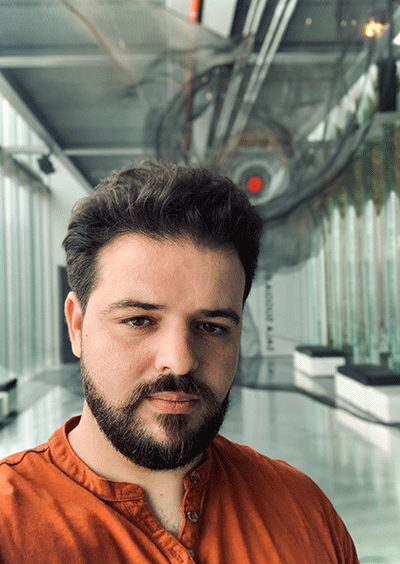
With the collaboration:
Ana Lídia Pereira text
Bernardo Bento voice Editing
Francisco Dias videography
Helder Maia sculpture
Orfeu Bertolami theoretical physics
Óscar Rodrigues overall development
Thanks:
José Alberto Gomes PhD adviser
Carlos Alves materials
BikeRider directional device
Inspired by Rafael Maia’s doctoral research, in which he rethinks our relationship with timbre, this piece explores its potential to unveil the intangible dimensions of our reality.
As the philosopher Salomé Voegelin suggests, the acoustic environment is the world in sound, as it is or as it could be. In this piece, timbre is viewed beyond mere acoustic phenomena; it is a relationship, contingent and individual, between sonic clues and our conceptual engagement with them. Through active listening, visitors are invited to expand their understanding of the hidden layers of our reality. A line of thought that intersects with Christina Kubisch’s explorations, where sound similarly exposes the invisible electromagnetic dimension that surrounds us. Dark matter, one of the most elusive substances which, despite its predominance in the universe, remains intangible, was the medium chosen for this conceptual experiment. A text—made up of fragments of thoughts that reflect both the qualitative essence of dark matter and the nature of our relationship with timbre—activates the installation. Inspired by Alvin Lucier’s experiments on the relationship between sound and space, as the text interacts with different interpretations of Dark Matter, its timbral behavior changes iteratively. The text becomes discernible only at a sonic focal point, where the timbral clues converge in a unified narrative—reminiscent of the way the gravitational lens reveals the presence of dark matter. It is not a sonification exercise, but rather a subversion of our conventional relationship with timbre. Here, timbre is liberated: it is not the consequence of a source; instead, it takes shape only as a product of thought and mind, allowing visitors’ interpretations to create their own version of source and, with it, their own true reality, without contradicting any other form of its existence.
friday, october 04, 18:45
Ecos do passado, sons do futuro – os desafios das novas tecnologias para a música clássica (moderação: Rui Pedro Pereira)
Echoes of the past, sounds of the future – how new technologies challenge classical music (moderator: Rui Pedro Pereira)
Daniel Moreira
Elena Rykova
Hibiki Mukai
Esta mesa redonda irá explorar a relação em evolução entre a música clássica e as tecnologias emergentes. Por um lado, as novas ferramentas oferecem oportunidades criativas estimulantes, alargando as possibilidades dos compositores e intérpretes e tornando a música clássica mais acessível a um público mais vasto. Por outro lado, o aumento das distrações digitais, a aceleração do tempo e o encurtamento da atenção (devido ao aumento dos estímulos) do público moderno colocam desafios, tornando as peças longas e complexas potencialmente menos apelativas para o público.
This roundtable will explore the evolving relationship between classical music and emerging technologies. On one hand, new tools offer exciting creative opportunities, expanding the possibilities for composers and performers while making classical music more accessible to wider audiences. On the other hand, the rise of digital distractions, the speeding up of time and the shortened attention spans (due to increased stimuli) of modern audiences pose challenges, potentially making long, complex pieces less appealing to them.
saturday, october 05, 17:15
Vibrant soundscapes: quickfire sessions on music, sound, art and technology
Cláudia Martinho
João Carlos Pinto
Jorge Queijo e Tiago Lêdo (Programa Educativo da Orquestra Jazz de Matosinhos)
Sara Borges (Circuito – Braga Media Arts)
Nesta sessão vamos contactar com projectos de diferentes naturezas que exploram a relação entre a música e a tecnologia, em domínios tão diferentes como a educação, a criação artística, a arquitetura e a consciência social. Trata-se de um conjunto de apresentações curtas de cada um dos participantes, seguida de uma discussão final.
In this session we’ll get to know projects of different kinds that explore the relationship between music and technology, in fields as diverse as education, artistic creation, architecture and social awareness. It will consist of a series of short presentations by each of the participants, followed by a final discussion.